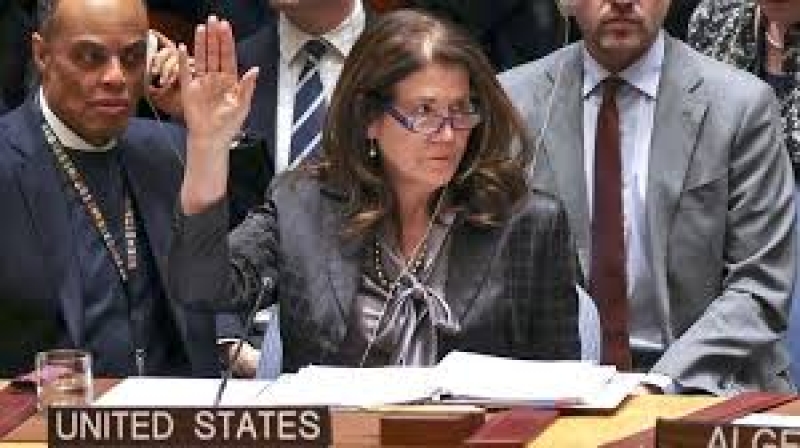- Tarique Calls for United Effort to Build a Safe Bangladesh |
- Tarique leaves for 300 feet area from airport |
- BNP top leaders welcome Tarique Rahman on homecoming |
- Flight carrying Tarique, family lands in Dhaka |
- Red bus with ‘Bangladesh first’ slogan ready at Dhaka airport for Tarique |
US Sides with Russia in UN Votes on Ukraine

The United States has aligned with Russia in two key United Nations votes marking the third anniversary of Russia's invasion of Ukraine, signaling a shift in the US approach to the war under the Trump administration.
In the first vote, the US opposed a European-drafted resolution condemning Moscow’s actions and supporting Ukraine's territorial integrity. This vote placed the US on the same side as Russia, along with countries such as North Korea and Belarus, in the UN General Assembly (UNGA) in New York.
Subsequently, the US drafted and supported a resolution in the UN Security Council calling for an end to the conflict but refraining from criticizing Russia. The resolution passed, but key US allies— the UK and France—abstained after their proposed amendments were vetoed.
The resolutions were tabled during French President Emmanuel Macron's visit to the White House, where he sought to address the growing rift between the US and Europe over the war. On Thursday, British Prime Minister Sir Keir Starmer is scheduled to meet with the new American leader to discuss similar issues.
Under President Trump, the US has distanced itself from its traditional European allies, favoring a more conciliatory stance toward Moscow, raising questions about America's long-term commitment to European security. This shift was starkly evident during the UNGA vote on Monday, where the US backed a limited resolution mourning the loss of life in the "Russia-Ukraine conflict" and calling for its swift conclusion.
European diplomats introduced a more comprehensive resolution condemning Russia’s invasion and supporting Ukraine's sovereignty and territorial integrity. The European proposal received 93 votes in favor, but the US voted against it, joining Russia, Israel, North Korea, Belarus, Hungary, and 11 other countries. Sixty-five countries abstained from voting.
After amendments were made to the US resolution to include language supporting Ukraine, the US abstained from voting, and the resolution passed.
Republican Senator John Curtis expressed concern over the US vote, stating it put the country "on the same side as Russia and North Korea." He called the shift a "dramatic change from American ideals of freedom and democracy." Former Speaker of the House Nancy Pelosi also criticized the vote, stating it contradicted long-standing US support for democracy.
Ukraine’s former economy minister, Tymofiy Mylovanov, called the US’s stance deliberate, emphasizing that it was no longer just political rhetoric.
In the UN Security Council, a version of the US resolution, which did not criticize Russia, passed with 10 votes in favor. The UK, France, Denmark, Greece, and Slovenia abstained. The US’s acting envoy to the UN, Dorothy Camille Shea, described the resolution as a "historic statement" focused solely on ending the war.
The Security Council, where Russia holds veto power as a permanent member, has been paralyzed over the war, leaving the UNGA as the main forum for debate, though its resolutions are not legally binding, unlike those of the Security Council.

